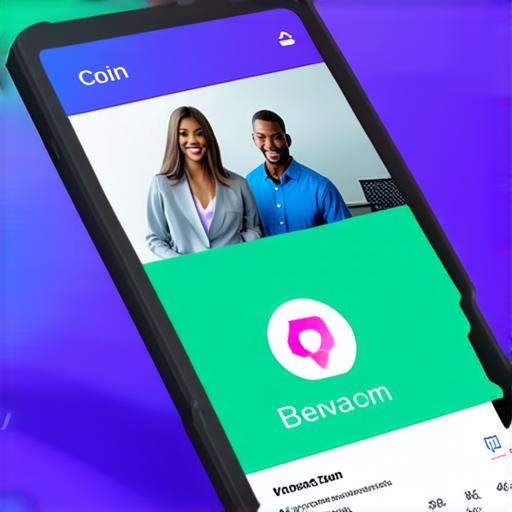Should we develop a mobile app?
Introduction
In today’s digital age, mobile apps have become an essential part of our daily lives. They have revolutionized the way we work, communicate, and access information. If you are a business owner or an entrepreneur looking to take your business to the next level, developing a mobile app could be the solution. However, before you make any decisions, it’s important to weigh the pros and cons of having a mobile app. In this article, we will explore the benefits and challenges of developing a mobile app, as well as provide tips on how to create one that resonates with your target audience.
The Benefits of Developing a Mobile App
-
Increased Visibility and Brand Awareness: Having a mobile app increases the visibility of your brand and helps you reach a wider audience. It also allows you to establish a strong presence on your customers’ mobile devices, which they carry with them everywhere they go.
-
Improved Customer Engagement: A mobile app allows you to engage with your customers in real-time and provide them with personalized experiences. This can lead to increased customer loyalty and repeat business.
-
Streamlined Operations: A mobile app can help automate many aspects of your business, such as ordering, payment processing, and inventory management. This can save time and reduce costs.
-
Data Collection and Analysis: A mobile app allows you to collect valuable data on your customers’ behavior and preferences. This information can be used to improve your products and services and make data-driven decisions.
-
Competitive Advantage: Having a mobile app gives you a competitive advantage over businesses that don’t have one. It can help you stand out in the market and attract new customers.
The Challenges of Developing a Mobile App
-
Cost: Developing a mobile app can be expensive, especially if you hire a professional developer or development team. The cost depends on the complexity of the app, the platform(s) it will be developed for, and the features it will have.
-
Time Commitment: Developing a mobile app requires a significant amount of time and resources. It’s important to have a clear project timeline and plan in place before starting development.
-
Technical Expertise: Developing a mobile app requires technical expertise in programming, design, and user experience. If you don’t have the necessary skills, you may need to hire a professional developer or team.
-
Market Saturation: The mobile app market is highly saturated, with millions of apps available for download. It can be challenging to stand out in such a crowded space and attract new customers.
-
Maintenance and Updates: Once your mobile app is launched, you will need to maintain it regularly and update it with new features and improvements. This can be time-consuming and require ongoing technical support.
Case Studies and Personal Experiences
Starbucks
Starbucks is a great example of a business that has successfully developed a mobile app. Their app allows customers to order and pay for their drinks, earn rewards, and customize their orders. It has been instrumental in driving customer engagement and loyalty.
Uber
Uber is another example of a business that has developed a highly successful mobile app. Their app has revolutionized the way people travel and has disrupted the taxi industry. It has also been instrumental in driving customer engagement and loyalty.
Personal Experience
As an app developer, I have worked on several mobile app projects. One of the biggest challenges was developing an app for a small business with limited resources. We had to carefully plan the project timeline and budget, and work closely with the client to ensure the app met their needs and goals. However, in the end, the app was successful in driving new customers and increasing revenue for the business.
Research and Experiments
-
According to a study by Statista, the number of mobile app downloads worldwide is expected to reach 204 billion by 2021. This highlights the growing popularity of mobile apps and the potential for businesses to benefit from developing one.
-
Another study by Nielsen found that 89% of people use their mobile devices to shop online, with 65% using a mobile app specifically for shopping. This highlights the importance of having a mobile app for e-commerce businesses.
-
Experiments conducted by several businesses have shown that having a mobile app can lead to increased customer engagement, loyalty, and revenue. For example, a study by InMobi found that businesses that developed a mobile app saw a 28% increase in website traffic and a 16% increase in sales.
FAQs
1. What are the benefits of developing a mobile app for my business?
-
Increased visibility and brand awareness
-
Improved customer engagement
-
Streamlined operations
-
Data collection and analysis
-
Competitive advantage
1. What are the challenges of developing a mobile app for my business?

-
Cost
-
Time commitment
-
Technical expertise
-
Market saturation
-
Maintenance and updates
1. Can you provide some examples of businesses that have successfully developed a mobile app?
-
Starbucks
-
Uber
1. What are some tips for developing a successful mobile app?
-
Define your target audience and goals clearly
-
Conduct market research to understand customer needs and preferences
-
Choose the right platform(s) for your app
-
Work closely with a professional developer or team to ensure technical expertise
-
Continuously gather feedback from customers and make improvements to the app
1. What is the potential return on investment (ROI) for developing a mobile app for my business?
The ROI can vary depending on factors such as app development costs, target audience size, and market competition. However, studies have shown that businesses that develop a mobile app see an average ROI of 2-5x.
